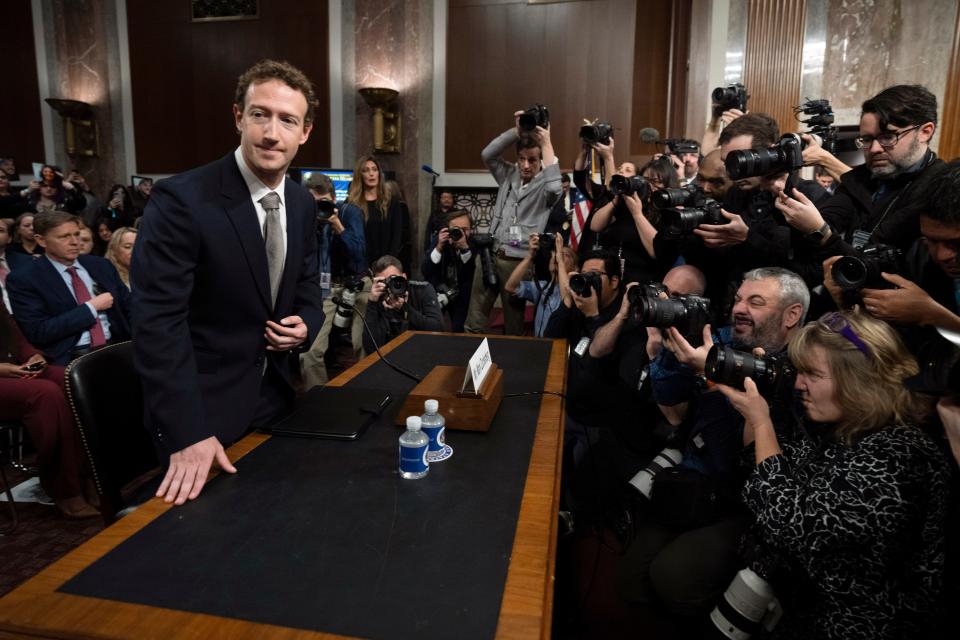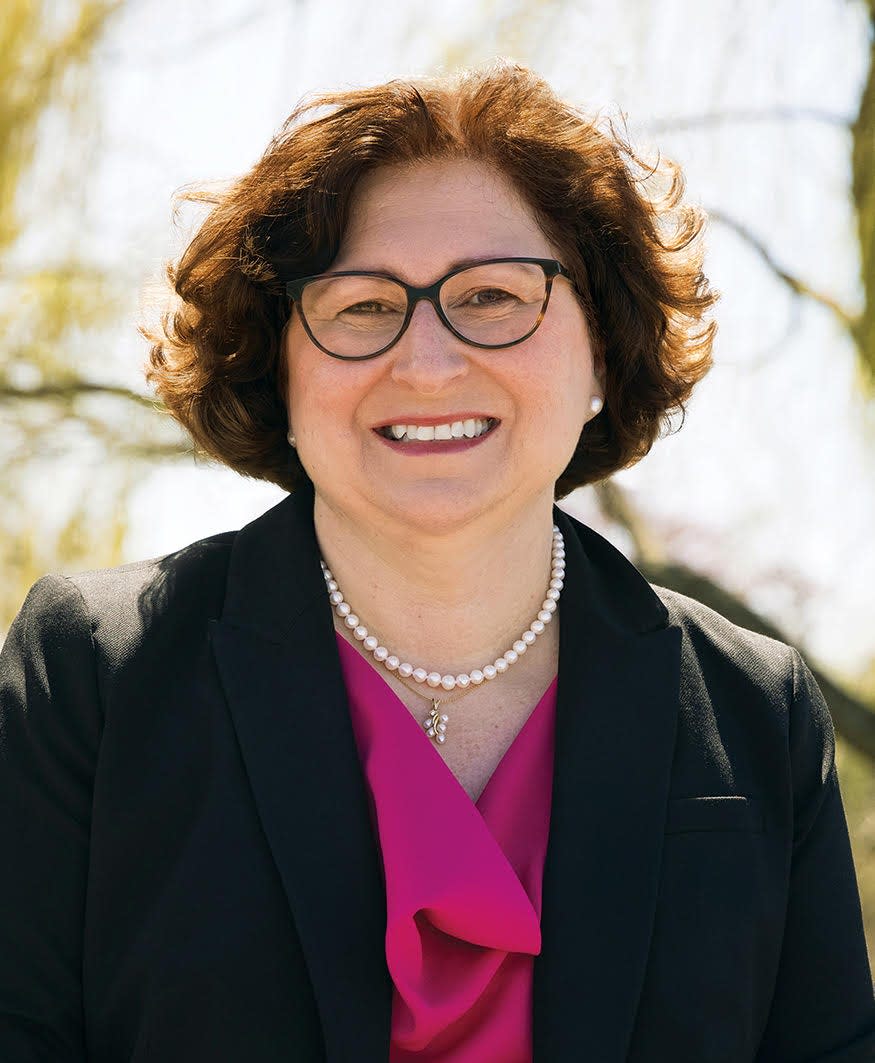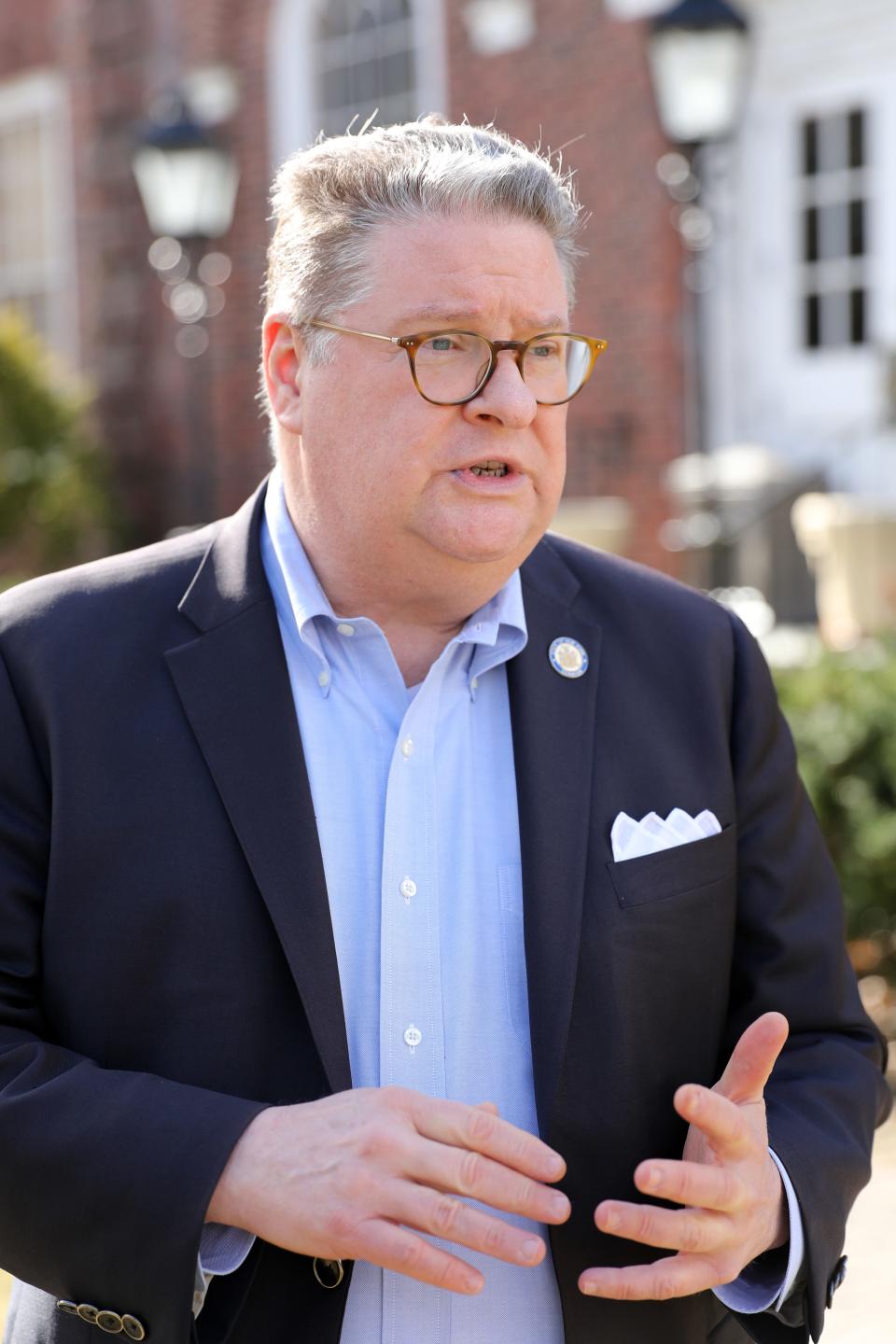Should NYS try to protect kids from addictive social media? Supreme Court case looms
Educators, parents and researchers agree social media is highly addicting, and if algorithm-based posts are not driving the mental health crisis plaguing kids, they're at least riding shotgun.
But the road to a solution is uncertain. A national push for social media platforms to do more to protect kids is playing out alongside an anticipated decision from the U.S. Supreme Court on state laws seeking to prevent social media companies from moderating content posted on their sites.
New York has entered the fray with a pair of bills in the state Legislature that would prevent social media platforms from providing minors under 18 with addictive feeds without parental consent. The addicting nature of social media has been made possible by sophisticated algorithms that learn users' habits and provide them with content that keeps them on platforms longer.
The bills would require social media platforms to get parent consent to allow kids to get their notifications between midnight and 6 a.m. And they would require the platforms to create options to opt out of access during those hours and limit how much time kids could spend on platforms overall.

"When it comes to things like this we need to protect our young people," said state Sen. Peter Harckham, D-Lewisboro, who is a co-sponsor of the Stop Addictive Feeds Exploitation for Kids Act, or SAFE Act.
Should states intervene to protect kids from social media?
New York's bills aren't about controlling what content young people can access, but rather about addressing the algorithms that present kids with the most addicting content, Harckham said.
Both Harckham and state Assemblymember MaryJane Shimsky, D-Dobbs Ferry, a co-sponsor of the bill on the Assembly side, said federal legislation would ideally address the problem. "But the question is can our children in New York wait that long?" Shimsky said.
Shimsky drew parallels to cigarette companies knowingly selling an addictive product.

State Assemblymember Steven Otis, a Democrat who represents the Sound Shore and chairs the Assembly's Science and Technology Committee, said the committee was reviewing the bill and feedback from technology experts. The bills could either be included in the upcoming state budget or they could continue to be pursued as standalone legislation, he said.
States aren't going to wait for the federal government to protect kids from social media, Otis said, and may not want to be "limited to what the federal government comes up with when they come up with something."
Last year the U.S. surgeon general released a report saying social media presented "a profound risk of harm" to children and adolescents' mental health.
In January, the CEOs of Discord, Meta, Snap, TikTok and X, formerly Twitter, testified before the U.S. Senate Judiciary Committee. Legislators told them they weren't doing enough to protect kids from the harms of social media. In attendance were parents whose kids had suffered the negative impacts of social media, including suicide.
When free speech applies
The Supreme Court is expected to make a decision by June on two state laws restricting social media: one in Florida that prevents companies from kicking politicians off their social media platforms, and one in Texas that prevents them from removing users because of their viewpoints.
Media reports indicated the court was skeptical of the two laws last month.
While the New York bills have very different goals in targeting the algorithms presenting kids with addicting content, Leslie Garfield Tenzer, a professor of law at Pace University, suspects the New York legislation could run into similar pushback as the Florida and Texas laws. It could be challenged by lobbying groups for tech companies, she said.
The Florida and Texas laws were born out of frustration with social media platforms' responses to former President Donald Trump and his social media posts that preceded the Jan. 6, 2021 attack on the U.S. Capitol.

But the First Amendment applies to the government, not to private companies, Tenzer said. The government can't restrict a citizen's free speech, but private social media sites can set their own rules for kicking people off, Tenzer said.
But If the Supreme Court were to decide social media companies are common carriers, like railroads and telecommunications companies, they would be seen as quasi-governmental entities and subject to federal regulation, Tenzer said.
"The question then becomes for New York state ... can New York state regulate the algorithms?" Tenzer said.
The New York legislation could run into problems if the Supreme Court rules against the Florida and Texas laws, which would indicate the government can't tell social media platforms what they can and can't do, Tenzer said.
Harckham said the New York legislation is not trying to restrict anyone's free speech, but protect children from addictive social media activity.
"There's a difference between free speech and using algorithms to force information onto a young person's feed, designed only to get them to stay on the device longer so they can sell more advertising," he said. "To me that's not free speech. That's corporate manipulation."
Contact Diana Dombrowski at [email protected]. Follow her on Twitter at @domdomdiana
This article originally appeared on Rockland/Westchester Journal News: NY legislation targets social media algorithms aimed at kids
